The life story of Jack Johnson
Story by Muroro-Pacho
Milimani-Strathmore

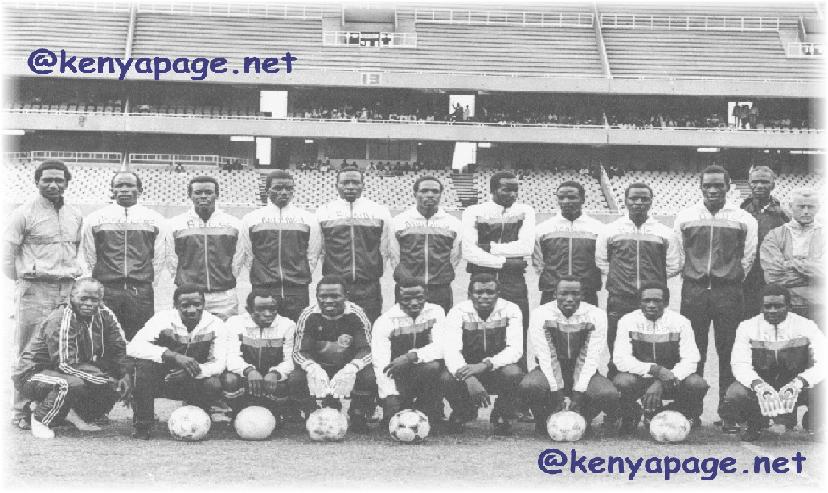
Early Life
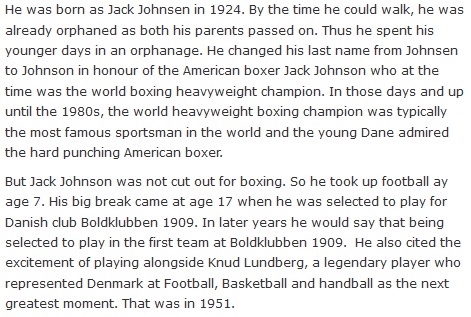
Playing Career
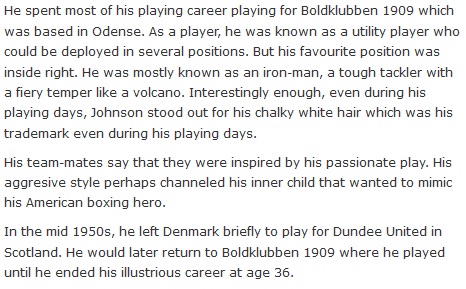
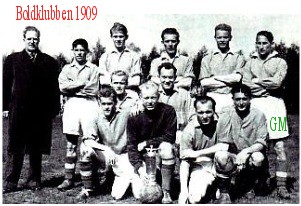
Coaching career at Boldklubben 1913
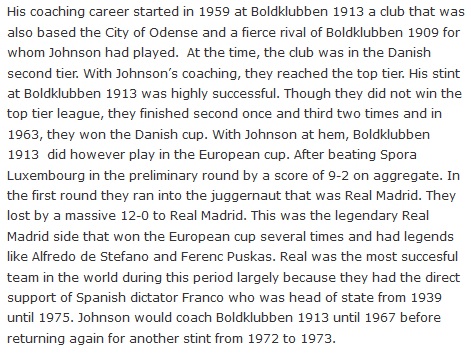
Coaching OB Odense
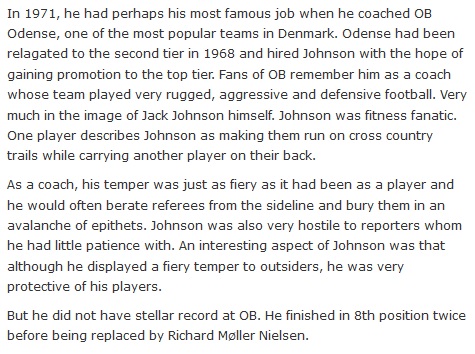
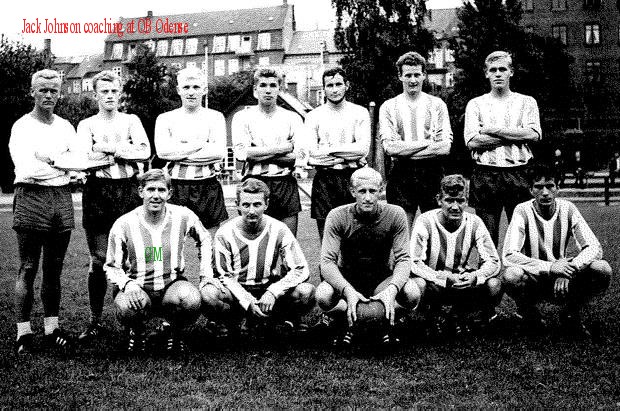
The Jack Johnson Institute

Remaining coaching career in Europe
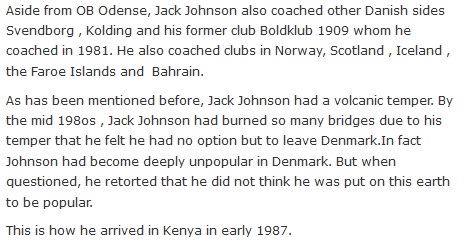
Jack Johnson arrives at Gor Mahia
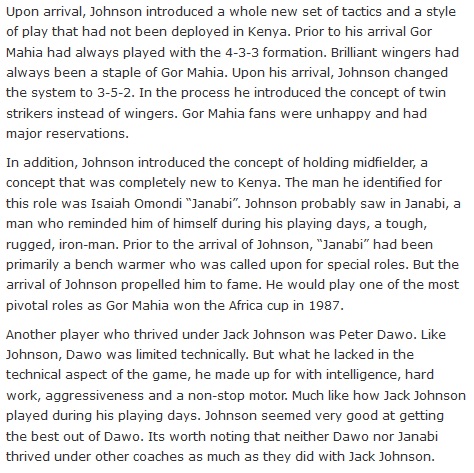
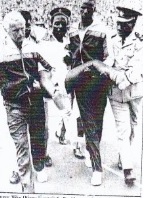
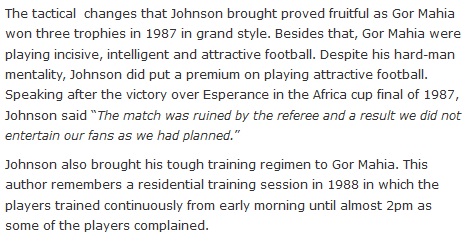
Cup Triumphs
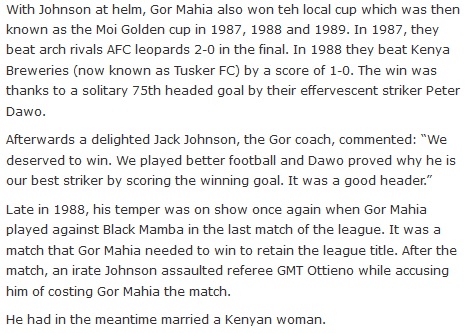
Jack Johnson leaves Gor Mahia
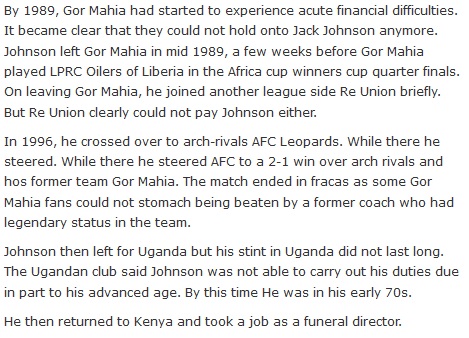
Departure from Kenya and death

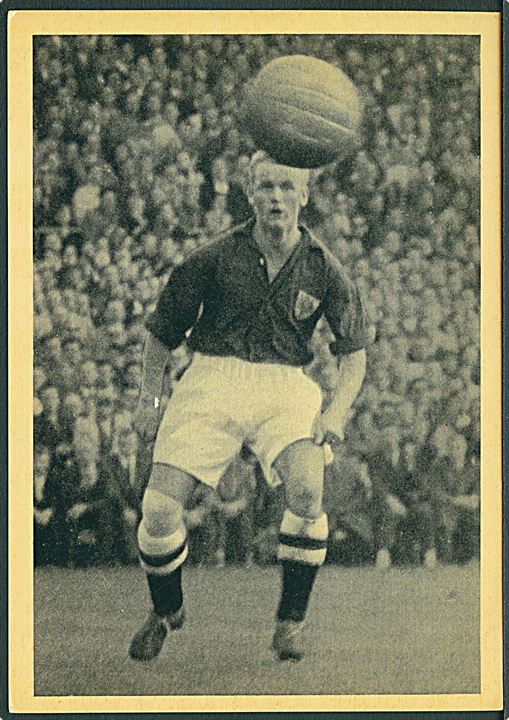

Thanks for that history which makes me to ask this questions.
What value is Sir Boby adding to the TB as a ass coach?
Can’t Gor get a qualified coach to assist Wiliamson?
That’s just my view since this position is very crucial not only when the coach is absent, but to exchange ideas on a daily basis.
Great history of the popular Danish man. Just some correction Gor won the Moi Golden Cup in 1986,87 and 88 in 1989 it was Breweries (Tusker)
He played for Dundee FC , not Dundee United.
He had two loan spells in 1948 and 1952, scoring twice